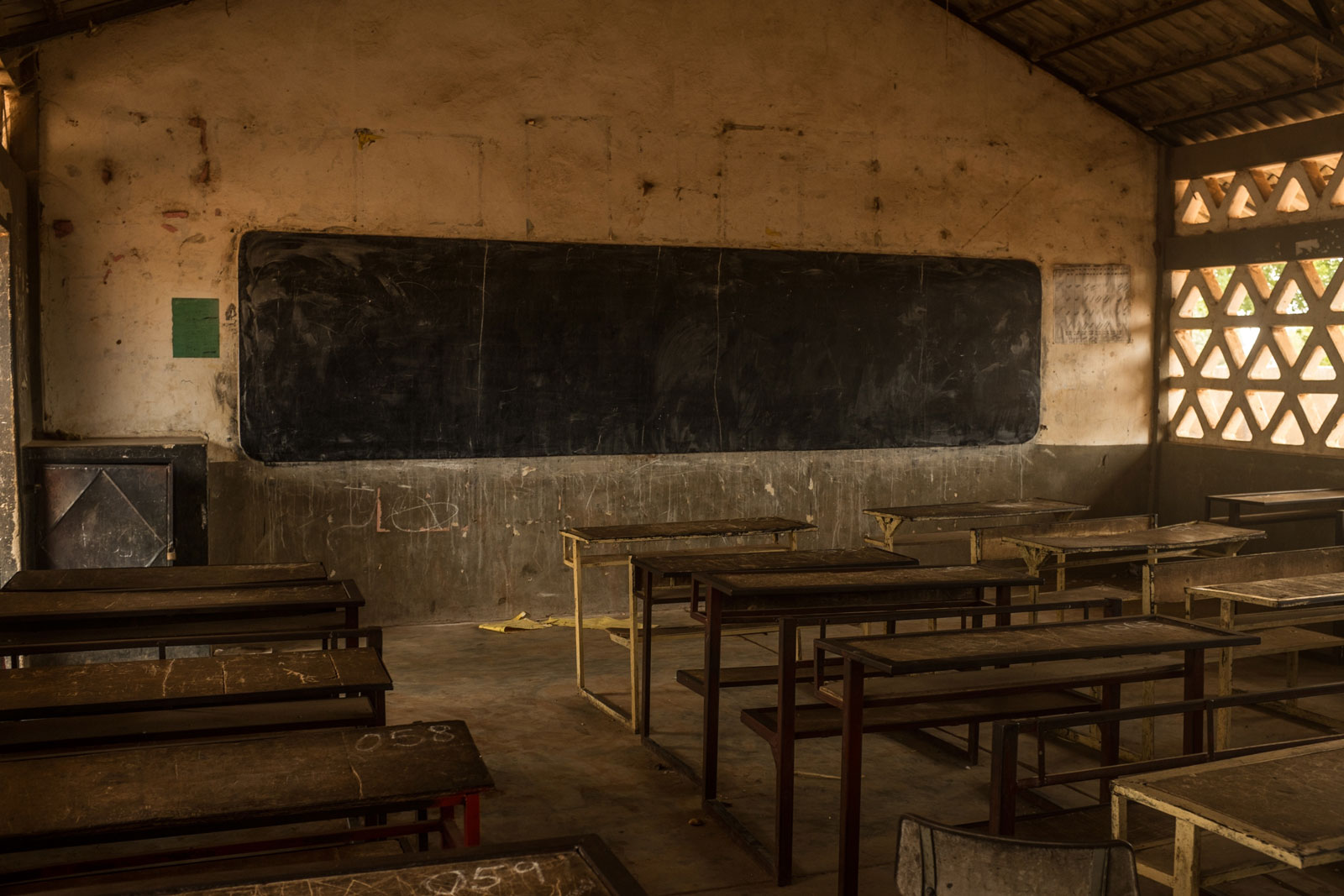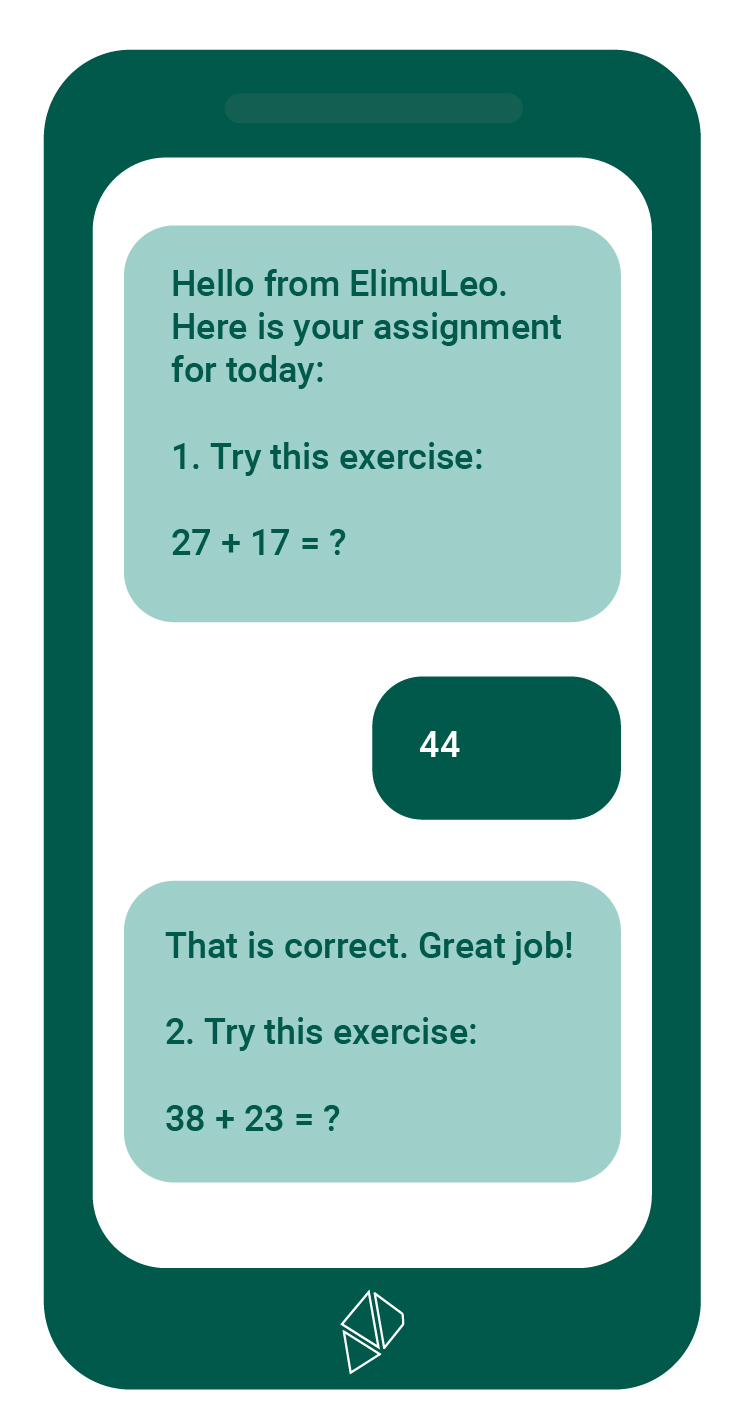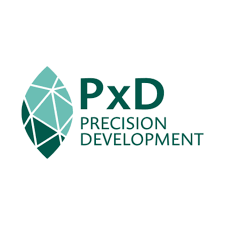The Impact of an SMS-Based Adaptive Math Learning Tool on Educational Outcomes in Kenya

In collaboration with IPA Kenya, Precision Development (PxD) and the Kenya Institute of Curriculum Development (KICD), researchers conducted a pair of randomized evaluations to measure whether an SMS-based adaptive mathematics learning service improved educational outcomes of school-aged children. The service appears to have improved math skills, school attendance, and grade attainment of students in households without electricity.
In sub-Saharan Africa, an estimated three-quarters of families are unable to use the internet to access educational materials, and access is even more limited in rural areas.1 A number of digital learning tools have emerged in low- and middle-income countries (LMICs) aiming at reducing inequality in access to digital learning and educational outcomes, a need that was made more apparent with the COVID-19 pandemic.2 The organizations Precision Development (PxD) and KICD developed ElimuLeo, a free service offering children adaptive practice in primary-school mathematics via a two-way SMS shortcode. The system provides practice problems, real-time feedback, and adjusts difficulty based on previous responses.
In partnership with PxD, KICD, and IPA Kenya, researchers conducted a pair of randomized evaluations to measure whether ElimuLeo improved educational outcomes of school-aged children in rural Kenya. In the first evaluation, 4,551 households which were active users of PxD’s agricultural extension services and had a child in primary school joined ElimuLeo during COVID-19 school shutdowns in December 2020. The households were randomly divided into two groups:
- Early access group: These households received ElimuLeo and regular reminders to use the service beginning in December 2020.
- Comparison group: These households were placed on a waitlist and received access to ElimuLeo in August 2021
In the second evaluation, researchers assessed the demand for ElimuLeo in April 2021, when schools were closed for holiday. They provided access to ElimuLeo to 6,801 households, which were randomly divided in two groups:
- Reminder group: These households received access to the platform with regular reminders.
- Comparison group: These households received access to the platform with no reminder.
Across both interventions, approximately 40 percent of invited households opted in to ElimuLeo. Of these households, those lacking electricity, radios, or televisions used the service more and completed more problems. Usage of, and advancement in, the service were highest when school was out of session—particularly during the COVID closure. Households receiving regular reminders engaged at higher levels than those without reminders. Children who had access to ElimuLeo before August 2021 had more advanced math skills than those who did not have access until then, particularly children in households without electricity who had access in December 2020. Children in households without electricity were also more likely to attend school and advance to the next grade, while there was no impact on these outcomes for children in households with electricity.

Sources
1 Dreesen, Thomas, Spogmai Akseer, Matt Brossard, Pragya Dewan, Juan-Pablo Giraldo, Akito Kamei, Suguru Mizunoya, and Javier Santiago Ortiz. 2020. “Promising practices for equitable remote learning: Emerging lessons from COVID-19 education responses in 127 countries.”
2 UNICEF. 2020. “Unequal access to remote schooling amid COVID-19 threatens to deepen global
learning crisis.”
Implementing Partners














